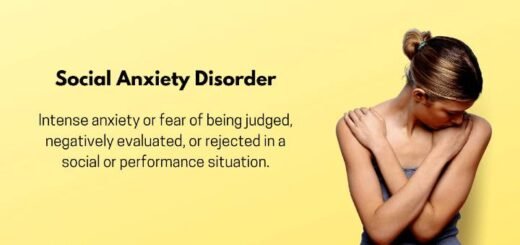Cultural Factors Shaping Social Phobia in New Zealand
Social phobia, characterized by intense fear and avoidance of social interactions, is profoundly influenced by cultural factors. In New Zealand, the unique social landscape, including its diverse population and distinct cultural norms, shapes how individuals experience and express symptoms of social anxiety. Understanding social_1 is essential in recognizing how these cultural dimensions can exacerbate or alleviate feelings of isolation and anxiety in social situations.
New Zealand’s emphasis on community and collectivism often clashes with the individualistic tendencies that characterize social phobia. This dynamic can complicate the path to support and recovery. By exploring available support groups, individuals can find culturally sensitive resources that cater to their unique experiences. Understanding social_1 in this context is crucial for fostering effective coping strategies and building supportive networks within New Zealand’s rich cultural tapestry.
The Unique Social Landscape of New Zealand
New Zealand is known for its stunning landscapes and rich cultural diversity. However, these unique attributes also shape the social interactions among its residents. The social atmosphere in New Zealand can be characterized by a blend of Western individualism and Maori collectivism, which influences how social phobia is experienced and understood. Individuals in New Zealand may feel the pressure to conform to certain social norms, which can exacerbate feelings of anxiety in social situations. For those experiencing symptoms of social phobia, understanding these cultural nuances is crucial.
In New Zealand, the concept of ‘whanaungatanga’ emphasizes the importance of relationships and community connections. This can create both support and pressure for individuals with social phobia. They may find themselves caught between the desire to engage socially and the overwhelming fear of judgment or embarrassment. This duality can lead to a complex relationship with social interactions, making it essential to seek help and resources, such as those provided by Social Phobia New Zealand. Understanding how cultural factors impact the experience of social phobia can help individuals navigate their symptoms more effectively.
The Influence of Maori Culture on Social Interaction
The Maori culture plays a significant role in shaping social interactions in New Zealand. The traditional values of respect, hospitality, and community involvement can create a supportive environment for many. However, for individuals facing social phobia, these same values can also lead to heightened anxiety. The expectation to participate in communal events, such as hui (meetings) or celebrations, can be daunting for someone who struggles with social interactions.
Moreover, the concept of ‘mana’—which refers to authority, spiritual power, and respect—can add another layer of complexity. Individuals may feel that their social worth is tied to their ability to engage comfortably within their community. This can lead to increased self-consciousness and fear of negative evaluation. By understanding these cultural influences, individuals can better address their social phobia and seek out coping strategies that resonate with their cultural background, such as engaging in one-on-one conversations before attending larger gatherings.
The Role of Language and Communication Styles
Language plays a pivotal role in shaping social interactions. In New Zealand, the use of both English and Te Reo Maori can create an additional layer of complexity for individuals with social phobia. The pressure to communicate effectively in social situations can be overwhelming, especially if someone is not fluent in both languages. The fear of making mistakes or being misunderstood can exacerbate feelings of anxiety.
Moreover, New Zealanders are known for their informal and laid-back communication style, which may contradict the experiences of those with social phobia. Individuals may feel the need to conform to a more casual demeanor, which can feel inauthentic to them. To navigate these challenges, it is essential for individuals to practice self-compassion and recognize that it is okay to communicate in a way that feels comfortable. Resources like Social Phobia New Zealand can provide invaluable advice on managing anxiety related to language and communication.
Social Norms and Expectations in New Zealand
In New Zealand, social norms often revolve around egalitarianism and inclusivity. While these values can create a welcoming environment, they can also lead to pressure for individuals with social phobia to engage in activities that feel overwhelming. For example, the expectation to participate in team sports or community events can be particularly challenging for those who struggle with anxiety in social settings.
These expectations can create a paradox where individuals feel compelled to meet social norms while grappling with intense anxiety. Understanding that it is acceptable to set boundaries and prioritize one’s mental well-being is crucial. Engaging in smaller, more manageable social settings can serve as a stepping stone. By gradually increasing their comfort level, individuals can find a balance between social participation and their mental health needs. Seeking support from Social Phobia New Zealand can help individuals develop personalized strategies for navigating these expectations.
The Role of Community Support and Resources
Community support plays a critical role in managing social phobia in New Zealand. The presence of various organizations, support groups, and online resources can provide individuals with the tools needed to understand and cope with their symptoms. For instance, local support groups allow individuals to share their experiences and learn from one another, fostering a sense of belonging and understanding.
Additionally, online platforms offer anonymity, which can be beneficial for those who may feel uncomfortable discussing their struggles face-to-face. Websites like Social Phobia New Zealand provide educational resources, coping strategies, and access to professional help. Engaging in these community resources can empower individuals to confront their social phobia and build resilience in a culturally relevant context.
Case Studies: Experiences of Social Phobia in New Zealand
Examining real-life case studies can provide valuable insights into how cultural factors influence experiences of social phobia in New Zealand. For example, consider the story of a young Maori woman who felt immense pressure to conform to social norms during community events. Her journey highlights the struggle between cultural expectations and personal comfort levels in social situations.
Through therapy and support from Social Phobia New Zealand, she learned to recognize her triggers and develop strategies for coping. By gradually exposing herself to social situations in a controlled manner, she began to reclaim her sense of agency in social interactions. Such case studies illustrate the importance of understanding cultural context when addressing social phobia and can inspire others facing similar challenges.
Strategies for Coping with Social Phobia in a New Zealand Context
Coping with social phobia requires a multifaceted approach, particularly in the unique social landscape of New Zealand. One effective strategy is to engage in mindfulness practices, which can help individuals ground themselves and reduce anxiety in social situations. Additionally, seeking out environments that are culturally inclusive and understanding can make a significant difference.
Another useful tip is to practice exposure therapy in a culturally relevant context. For instance, attending smaller gatherings with close friends or family can help ease the transition into larger social settings. Utilizing resources like Social Phobia New Zealand can offer guidance on exposure techniques and connecting with others who share similar experiences. Ultimately, embracing cultural factors while implementing effective coping strategies can empower individuals to manage their social phobia more effectively.
FAQs
What is social phobia and how does it manifest in individuals?
Social phobia, also known as social anxiety disorder, is characterized by an intense fear of social situations where one may be judged or scrutinized by others. Individuals may experience symptoms such as excessive worry about embarrassment, avoidance of social interactions, and physical symptoms like sweating or trembling. Understanding social_1 highlights how these experiences can vary significantly based on the cultural context.
How do cultural factors influence social phobia in New Zealand?
Cultural factors in New Zealand, such as the emphasis on community and collectivism, can shape how social phobia is experienced. In a society that values social connections, individuals may feel heightened pressure to conform to social expectations, which can exacerbate feelings of anxiety and fear in social situations.
Are there specific cultural practices in New Zealand that impact social anxiety?
Yes, cultural practices such as the Māori concept of “whanaungatanga,” which emphasizes relationships and kinship, can influence the experience of social phobia. Individuals may feel a strong sense of obligation to engage socially, which can be daunting for those with social anxiety, making their experiences unique compared to other cultures.
How does the perception of social interactions differ in New Zealand compared to other countries?
In New Zealand, social interactions may be perceived as more informal and relaxed, but this can create a paradox for those with social phobia. While the casual atmosphere might seem welcoming, individuals may still feel overwhelmed by the expectation to engage, leading to a complex interplay of anxiety influenced by cultural norms.
What role does media representation play in shaping social phobia in New Zealand?
Media representation in New Zealand can impact societal perceptions of social anxiety. Positive portrayals of individuals overcoming social challenges may encourage those with social phobia to seek help, while negative stereotypes can reinforce feelings of isolation and stigma. Understanding social_1 can provide insights into how these representations shape individual experiences.
How can individuals in New Zealand seek support for social phobia?
Individuals in New Zealand can seek support through various channels, including counseling services, support groups, and community programs. Initiatives that focus on cultural sensitivity and understanding social_1 can enhance the effectiveness of treatment by addressing specific cultural influences on anxiety.
What strategies are effective for managing social phobia in a culturally diverse environment like New Zealand?
Effective strategies for managing social phobia may include cognitive-behavioral therapy, exposure therapy, and mindfulness practices. Additionally, incorporating cultural elements into treatment, such as understanding social_1, can help tailor approaches to each individual’s unique context, making them more relatable and effective in New Zealand’s diverse social landscape.
References
- New Zealand Social Phobia Society – An organization dedicated to raising awareness and providing support for individuals experiencing social phobia in New Zealand, offering resources tailored to the country’s unique cultural context.
- Mental Health and Addiction Research in New Zealand – A comprehensive report discussing the prevalence of social anxiety disorder in New Zealand, including cultural influences that may affect symptoms and experiences.
- Te Ara Encyclopedia of New Zealand – An informative entry that explores the relationship between social anxiety and New Zealand’s cultural landscape, highlighting factors that contribute to social phobia in the region.
- Psychology Aotearoa – Social Anxiety in New Zealand – A publication by the New Zealand Psychological Society that delves into social anxiety, with a focus on cultural factors and their impact on experiences in New Zealand.
- Cultural Factors in Social Phobia: An Overview – A scholarly article that reviews the influence of cultural factors on social phobia symptoms, with implications for understanding these dynamics in New Zealand’s diverse society.




